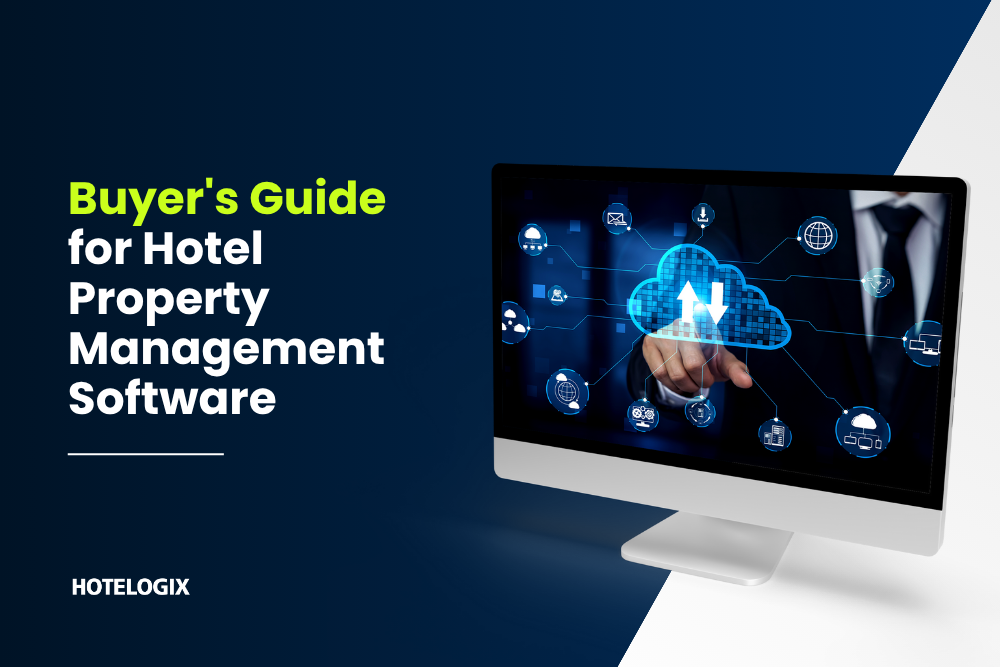What are the Benefits of Inventory Management Software?
Managing a hotel involves juggling numerous tasks that require attention to detail and precision. One of the most crucial yet often overlooked tasks in hotel management is inventory control. Inventory includes everything from toiletries and linens to food & beverage supplies, cleaning products, and maintenance tools. Ensuring these resources are well-managed is vital for smooth operations and exceptional guest experiences.
What is Hotel Inventory Management?
Inventory management in a hotel refers to the process of purchasing, stocking, and tracking goods that are essential to your operations. This could include perishables, guest amenities, housekeeping supplies, or even tools for maintenance and repairs. Efficient inventory management helps hotels maintain consistent stock levels, reduce wastage, and avoid overstocking or stockouts, which can disrupt operations.
Why is Inventory Management Crucial in Hotels?
Proper inventory management is crucial for ensuring that all areas of your hotel—from guest rooms to restaurants—operate efficiently. Without the right resources at the right time, your hotel’s operations can grind to a halt. Whether it's not having enough linens, or food items being out of stock, such shortages affect guest satisfaction and your bottom line.
Key Components of Hotel Inventory Management
Hotel inventory management involves several key stages to keep your hotel well-stocked and prepared:
This streamlined approach ensures that inventory is handled efficiently, preventing excess or insufficient stock and providing valuable insights into how inventory is performing.
The Risks of Manual Inventory Management in Hotels
Without an automated system, hotel managers often rely on manual methods to track inventory, which can result in errors. Manual updates can lead to inaccurate stock counts, delays in restocking, and missed opportunities for optimizing inventory.
How Hotel Inventory Management Software Works
Hotel inventory management software is designed to automate many of these manual processes, integrating seamlessly with other hotel systems like Property Management Systems (PMS), Revenue Management System, and Point of Sale (POS) systems. With real-time tracking, this software ensures that your stock levels are always accurate, helping prevent stockouts, over-purchasing, and even theft.
Benefits of Using Hotel Inventory Management Software
Here’s why implementing a hotel inventory management system is vital for your hotel:
1-Ensuring Stock Availabilit
Guests expect items to be readily available, whether it’s an extra towel or a specific meal. By automating stock tracking, hotel inventory management software ensures that your hotel always has the right amount of inventory, when and where it’s needed.
2-Improved Efficiency and Reduced Errors
Manual inventory tracking is prone to human error. An automated system ensures more accurate stock counts and efficient processes across multiple departments, reducing errors, and freeing up staff time for more customer-centric tasks.
3-Cost Savings
Efficient inventory management helps avoid overstocking or understocking. This reduces unnecessary purchases and helps minimize waste—especially with perishable items like food and beverages.
4-Better Stock Visibility
Real-time stock visibility across multiple hotel properties is crucial for managing inventory efficiently. With cloud-based solutions, you can track and manage inventory from anywhere, ensuring that hotel management is always in the loop.
5-Preventing Theft and Shrinkage
Inventory management software helps you monitor product movements and highlights any discrepancies, making it easier to identify and prevent theft.
Inventory Management Techniques for Hoteliers
Hoteliers can apply various strategies to optimize their inventory control. Here are some common techniques:
These techniques, when implemented through hotel inventory management software, help streamline your operations, reduce costs, and improve overall efficiency.
The Need for an Inventory Management System in Hotels
Running a hotel without proper inventory management can lead to operational inefficiencies and financial losses. Here’s how an inventory management system benefits hoteliers:
1-Streamlined Order Management
Order management is simplified as the software tracks stock levels and automatically generates purchase orders when stock falls below a set threshold.
2-Enhanced Supply Chain Management
Hotel inventory management software ensures smooth flow from vendors to warehouses to hotel properties, improving fulfillment and reducing bottlenecks in your supply chain.
3-Warehouse Management Optimization
The software optimizes storage spaces by tracking where products are stored and when they need to be replenished. It helps manage and track stock across multiple storage locations.
4-Inventory Optimization
With real-time visibility into inventory levels, managers can move inventory efficiently, reducing excess stock and ensuring that demand is always met without overstocking.
Why Hotelogix's Inventory Management System Stands Out
- Multi-property Integration: If you manage multiple properties, Hotelogix allows you to track inventory across all of them from a single dashboard. This is ideal for hoteliers looking to centralize control over inventory management across various locations.
- Seamless Integration with Hotel Systems: Hotelogix integrates smoothly with your PMS, Revenue Management System, and POS systems, offering real-time tracking and data updates to enhance your inventory processes. This means you can monitor your stock levels across all departments and take immediate action if supplies are running low.
- Automated Alerts: Get real-time alerts when stock levels fall below predefined thresholds, preventing any last-minute surprises and enabling proactive inventory management.
- Comprehensive Reporting: Access detailed reports on your inventory levels, trends, and performance across various categories. This insight enables smarter purchasing decisions and operational strategies to optimize inventory usage.
With Hotelogix’s cloud-based system, your hotel can streamline its inventory processes, reduce errors, and enhance efficiency, leading to cost savings and improved guest satisfaction.
Conclusion
In the fast-paced world of hospitality, managing inventory effectively can make all the difference. Inventory management software provides the tools needed to ensure that your hotel runs smoothly, offering accurate stock tracking, better cost control, and improved guest experiences. By automating and optimizing inventory workflows, Hotelogix helps hoteliers stay ahead of the competition and focus on what truly matters—providing exceptional guest service.
Investing in a robust hotel inventory management system will not only streamline your operations but also drive long-term growth and profitability for your hotel.



